Tech congressional hearings: Trump threatens giants with executive order as Google, Facebook, Amazon chiefs grilled
Amazon boss Jeff Bezos has described social media as a “nuance destruction machine”, as congressional hearings continue.
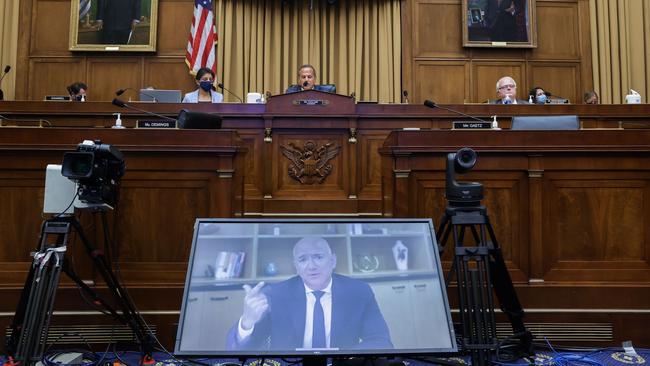
Hello and welcome to The Download, The Australian’s technology blog for the latest tech news. Overnight in the US the chief executives of the world biggest tech companies have been appearing before congressional hearings into antitrust issues. Amazon.com’s Jeff Bezos, Apple’s Tim Cook, Facebook’s Mark Zuckerberg and Sundar Pichai, CEO of Google parent Alphabet Inc. are testifying. US president Trump has threatened to take action if Congress does not.
1.40pm: Samsung weighs up dropping its Bixby personal assistant
Samsung is considering dropping its Bixby virtual assistant and Galaxy Apps Store from its mobile devices as part of a new global revenue-sharing deal with Google, according to correspondence seen by Reuters.
But Samsung said it has no plans to drop either Bixby or Galaxy Store from its devices, saying both services are an important part of the Galaxy ecosystem. “We remain committed to our own services and ecosystem,” it said in a statement.
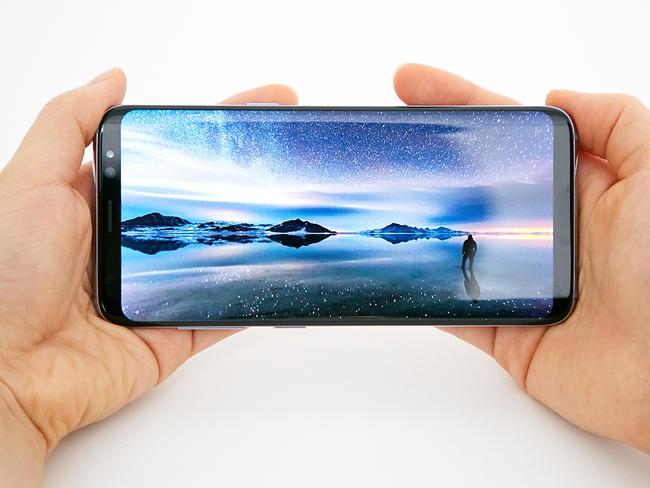
Google has tried for years to get Samsung, the world’s leading mobile device maker by units sold, to drop its own services and give greater prominence to Google’s search, Assistant and Play Store apps, according to a person previously involved in the relationship.
The search giant, whose Android software powers phones from Samsung and dozens of other companies, sometimes as an incentive gives manufacturers a portion of ad revenue generated from Google apps featured on their devices.
But Samsung has clung to efforts to promote its own apps, from which it can collect all the revenue, despite years of glitches and tepid user interest.
The strategy has been challenged in recent months, though, as the novel coronavirus pandemic and a slowdown in phone upgrades have hurt sales and prompted many companies to shutter costly projects and search for new revenue.
Exact financial details under negotiation between the companies could not be determined. But Google is dangling more lucrative terms for Samsung than in previous deals if it retreats from its app strategy, according to a source familiar with the talks. The companies are aiming to finalize terms by Friday, the source added.
Google said in a statement that it regularly discusses ways to improve the user experience with partners and that Samsung remains free to create its own app store and digital assistant. Bloomberg first reported on Tuesday that the companies were negotiating a new deal.
Reuters
1.20pm: Huawei leads smartphone market share due to growth in home market
China’s Huawei overtook Samsung as the world’s biggest seller of mobile phones in the second quarter of 2020, shipping 55.8 million devices compared to Samsung’s 53.7 million, according to data from research firm Canalys.
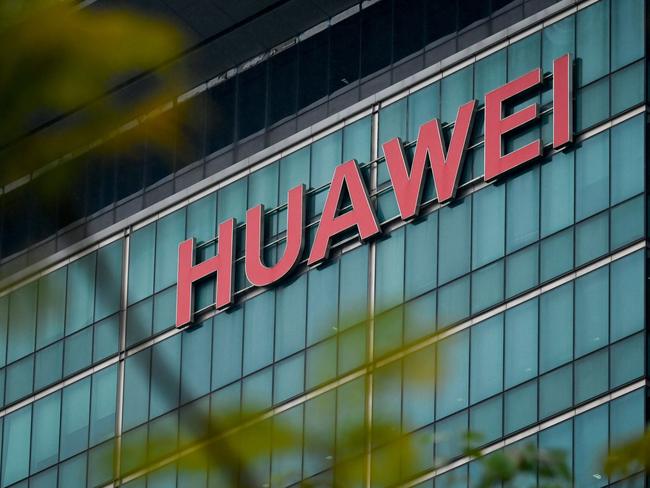
While Huawei’s sales fell 5pc from the same quarter a year earlier, South Korea’s Samsung posted a bigger drop of 30pc, owing to disruption from the coronavirus in key markets such as Brazil, the United States and Europe, Canalys said.
Huawei’s overseas shipments fell 27pc in Q2 from a year earlier, but the company increased its dominance of the China market which has been faster to recover from COVID-19 and where it now sells over 70pc of its phones.
“Our business has demonstrated exceptional resilience in these difficult times,” a Huawei spokesman said. “Amidst a period of unprecedented global economic slowdown and challenges, we’re continued to grow and further our leadership position.”
Nevertheless, Huawei’s position as number one seller may prove short-lived once other markets recover given it is mainly due to economic disruption, a senior Huawei employee with knowledge of the matter told Reuters.
Apple is due to release its Q2/2020 iPhone shipment data on Friday.
Reuters
Chris Griffith 1.10pm: Facebook fake news spirals out of control
Facebook’s propagation of dangerous misinformation is out of control and the company is making huge profits from it.
That’s a charge that its CEO Mark Zuckerberg couldn’t adequately address at a mammoth four-hour hearing looking at the monopolistic behaviour of tech giants Facebook, Google, Amazon and Apple.
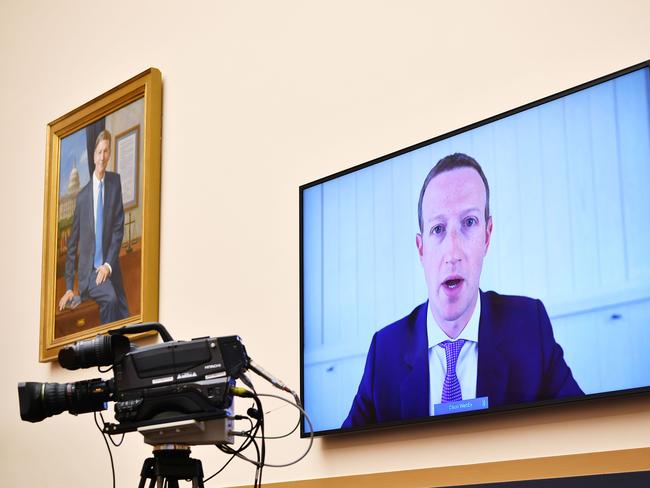
Congresswoman Pramila Jayapal confronted Mr Zuckerberg with the claim that he told staff to ignore the statements by more than 1100 companies and organisations who have pulled their advertising business from Facebook. Companies say Facebook couldn’t control racist material, hate speech and damaging misinformation.
“You had a staff meeting earlier this month where you told employees: ‘We’re not going to change our policies or approach because of a threat to any per cent of our revenue, my guess is that all these advertisers will be back on the platform soon enough.’”
She said it seemed the company was so big, it didn’t care about being impacted by a major boycott of 1100 advertisers.
10.10am: Question for CEOs: Does China steal from US tech companies?
One interesting moment came when the CEOs were asked by Representative Greg Steube (Republican, Florida) whether they believe the Chinese government steals from US companies. Here‘s how they responded:
Apple’s Tim Cook: “I don’t know of specific cases where we have been stolen from by the government. ... I can only speak to firsthand knowledge.”
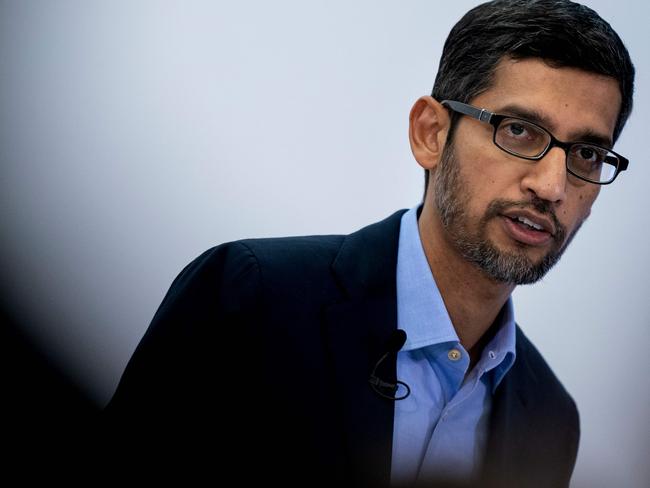
Google’s Sundar Pichai: “I have no firsthand knowledge of any information stolen from Google in this regard.”
Facebook’s Mark Zuckerberg: “I think it’s well documented that the Chinese government steals technology from American companies.”
Amazon’s Jeff Bezos: “I’ve seen--I have heard many reports of that, and I--I haven’t seen it personally, but I’ve many reports of it.”
The Wall Street Journal
9.05am: CEOs tackle ‘cancel culture’
Representative Jim Jordan (Republican, Ohio) harkened back to the famed “1984”-themed Apple TV commercial in pressing CEOs about ”cancel culture,” saying the ad, which ran in the 1984 Super Bowl, underscored the importance of defeating groupthink.
“I remember it very well. It was Apple vs. IBM at the time,” responded Apple CEO Tim Cook.
The exchange took place as Mr Jordan pressed the CEOs to weigh in on the issue.
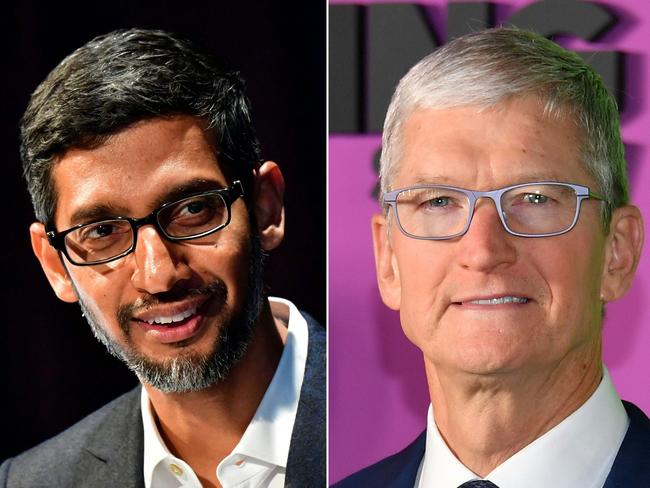
Mr Cook said he wasn’t fully briefed on the controversy. “If you’re talking about whether where someone has different point of view talks, and they’re cancelled, that’s not good. I think it’s good for people to hear different points of view and decide for themselves.”
Google’s Sundar Pichai said his company’s platforms support free expression.
Facebook CEO Mark Zuckerberg said he had concerns. “I believe strongly in free expression.. I am very worried about some of the forces of illiberalism I see in this country that are pressing against free expression,” saying the company was working to protect users‘ voices.
Said Amazon CEO Jeff Bezos, who followed Mr Zuckerberg: “ I‘m concerned in general about that. I find it a little bit discouraging that it appears to me that social media is a nuance destruction machine. I don’t think that is helpful for a democracy.”
Wall Street Journal
7.31am: Brazil warned over Huwaei
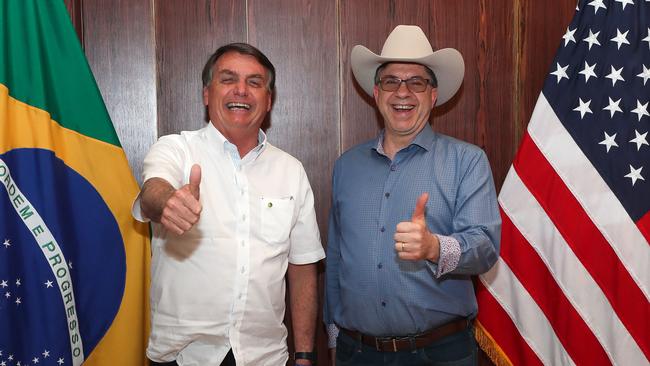
The US ambassador in Brasilia warned of “consequences” if Brazil chooses Chinese telecoms company Huawei to develop its 5G network.
“I wouldn’t say there would be retaliation, but there would be consequences” if Brazil goes against US advice and picks the Chinese firm, Ambassador Todd Chapman told newspaper Globo.
Brazil is due to launch a tender next year for the project to develop the next generation of telecommunications technology in Latin America’s most populous country, home to 212 million people.
The United States has been actively lobbying countries worldwide to boycott Huawei, arguing the firm could allow the Chinese government to spy on their data.
“At any time, the Chinese government could ask Huawei to send it information,” Chapman said.
“There’s no purely American company in the running. I’m not saying this to make a billion dollars. It’s a matter of national security.” Other companies that have shown interest in Brazil’s 5G tender include Sweden’s Ericsson and Finland’s Nokia.
Chapman also warned Brazil could scare away foreign investment by contracting a company that the US claims violates intellectual property rights and receives unfair state support that puts its competitors at a disadvantage.
“The US position is to alert our allies and friends, such as Brazil, so they know who they’re working with,” he said.
Chapman said the United States was prepared to help secure funds through the International Development Finance Corporation, a US government institution, to roll out 5G “for those who buy products from reliable suppliers.” The pressure is putting President Jair Bolsonaro’s government in a bind. Since taking office last year, the far-right leader has cultivated close ties with US President Donald Trump, whom he admires.
But China is Brazil’s biggest trading partner.
The row comes amid what many analysts are describing as a “new Cold War” between the US and China.
Britain announced earlier this month it would remove Huawei equipment from its 5G network, bowing to pressure from Washington despite warnings of retaliation from Beijing.
AFP
6.44am: Does Amazon dud sellers with data?
The chief executives of Amazon.com Inc., Apple Inc., Facebook Inc. and Google are appearing Wednesday before the House Antitrust Subcommittee investigating the market dominance of online platforms.
Amazon CEO Jeff Bezos fielded his first question from Democratic Rep. Pramila Jayapal of Washington, who asked whether Amazon uses individual data from third-party sellers, as described in an April Wall Street Journal report. “I can’t answer that question yes or no,” said Mr. Bezos in response. The WSJ investigation showed that Amazon’s private-label employees were using information about individual third-party sellers to develop competing products.
Mr. Bezos said that he was familiar with the Journal story and that he couldn’t guarantee that Amazon’s policy had never been violated. He said the company is continuing to look into it “very carefully.” Mr. Bezos avoided early questioning by subcommittee members due to a technical issue with his virtual feed.
Amazon has a robust private-label program making 158,000 products. Last year, a top Amazon lawyer gave Congressional testimony in which he said: “We don’t use individual seller data directly to compete” with businesses on the company’s platform.
After the Journal’s story, some questioned whether Amazon’s lawyer had misled Congress. “At best, Amazon’s witness appears to have misrepresented key aspects of Amazon’s business practices while omitting important details in response to pointed questioning,” said Rep. David Cicilline, who heads up the antitrust subcommittee, following the story. “At worst, the witness Amazon sent to speak on its behalf may have lied to Congress.”
Dow Jones Newswires
6.25am: ‘Too much power’
“Simply put: They have too much power,” Democrat representative David Cicilline, the subcommittee chairman, said of the companies in a statement opening the hearing. “Their ability to dictate terms, call the shots, up-end entire sectors, and inspire fear represent the powers of a private government. Our founders would not bow before a king. Nor should we bow before the emperors of the online economy,” he said.
“I share the concern that market dominance in the digital space is ripe for abuse, particularly when it comes to free speech,” said Rep. James Sensenbrenner, the committee’s top Republican, alluding to long-held concerns among conservatives that social media companies treat them differently from liberals.
He said Congress needs more information about allegations that the companies abuse their market power, and suggested Republicans would be more sceptical of a crackdown by antitrust authorities: “Being big is not inherently bad. Quite the opposite. In America you should be rewarded for success.”
President Trump also weighed in on the topic Wednesday, tweeting “If Congress doesn’t bring fairness to Big Tech, which they should have done years ago, I will do it myself with Executive Orders.” The CEOs, in written statements before the hearing, said they faced stiff competition that motivates them to keep improving their widely used products.
Mr. Bezos, in his first appearance before Congress, told lawmakers about his parents and his decision to leave a Wall Street job to start Amazon from a Seattle garage.
“The retail market we participate in is extraordinarily large and competitive,” he said, addressing broader concerns about Amazon’s power. “There is room in retail for multiple winners.” Mr. Zuckerberg said new companies are emerging all the time. “History shows that if we don’t keep innovating, someone will replace every company here today,” Mr. Zuckerberg said. He added that Facebook faces broad competition, pointing out it competes with Amazon and Google for advertising dollars, and with Apple on private messaging.
Mr. Cook addressed concerns from app developers about excessive fees and self-prefencing on the widely popular App Store.
“If Apple is a gatekeeper, what we have done is open the gate wider,” Mr. Cook said. “We want to get every app we can on the store, not keep them off.” Google took the most heat early in the hearing. Mr. Cicilline said the search giant abuses its position as a web gateway, saying it changed “from a turnstile to the rest of the web to a walled garden.” He quoted one internal memo that he said showed Google employees discussing how other websites had “too much traffic.” Mr. Pichai said he wasn’t familiar with the specific document, but pointed to vigorous competition in online search, such as searches for specific items on travel or retail websites, a sector known as “vertical search.” “When we look at vertical search, it validates the competition that we see,” Mr. Pichai said.
Two Republicans criticised Google for abandoning some work with the Pentagon, and repeated concerns among some in the Trump administration about the company’s work in China.
“It seems to really call into question your commitment to our country and our values,” said Rep. Matt Gaetz Mr. Pichai said the company doesn’t work with the Chinese military. “Compared to our peers it is very, very limited in nature,” he said of the company’s work in China.
House Judiciary Chairman Jerrold Nadler took on Mr. Zuckerberg, quoting documents of him describing Instagram as a threat before Facebook acquired it in 2012.
“This is exactly the type of anticompetitive acquisition that the antitrust laws were designed to prevent,” Mr. Nadler said.
“I think the FTC had all of these documents” when it reviewed the acquisition for compliance with antitrust laws, Mr. Zuckerberg responded, referring to the Federal Trade Commission.
Rep. Hank Johnson pressed Apple on whether it treats app developers equally, saying it has dedicated employees and special pricing deals for some large developers. Mr. Cook disagreed: “We treat every developer the same,” he said.
Dow Jones Newswires






To join the conversation, please log in. Don't have an account? Register
Join the conversation, you are commenting as Logout